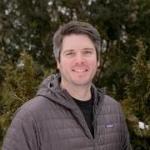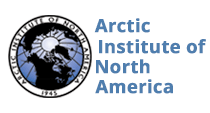A holistic approach to monitoring abrupt environmental shifts in the Kluane Lake region
Navigating the New Arctic (NNA) is one of NSF's 10 Big Ideas. NNA projects address convergence scientific challenges in the rapidly changing Arctic. The Arctic research is needed to inform the economy, security and resilience of the Nation, the larger region and the globe. NNA empowers new research partnerships from local to international scales, diversifies the next generation of Arctic researchers, enhances efforts in formal and informal education, and integrates the co-production of knowledge where appropriate. This award fulfills part of that aim by supporting planning activities with clear potential to develop novel, leading edge research ideas and approaches to address NNA goals. It integrates aspects of the natural environment and social systems, and addresses important societal challenges, builds significant educational opportunities, and engages internationally and with local and Indigenous communities.
Rapidly changing Arctic conditions necessitate multi-perspective approaches to creating new knowledge and engaging communities that are most affected by these changes. Thus, planning and co-producing effective Arctic research is needed, results of which will inform social and ecological security on a national, and global scale. The Kluane Lake Region in the Yukon Territory has recently experienced many abrupt environmental shifts. In 2016, the retreating Kaskawulsh Glacier cut off flow from Lhù’ààn Mân (Kluane Lake), effectively removing one of the largest water inputs to the lake. Additionally, recent insect outbreaks have harmed nearby forests, and warming climate regimes have shifted winter ice formation and snowpack development. While these compounding environmental changes will have drastic impacts to the ecosystem for decades to come, their impacts on the local communities will be more rapid. While these ecological impacts have been observed by formal research communities, it is also critical to work closely with local communities to understand their perspectives on critical research questions and natural resource concerns. Thus, the research team works with local communities like the Kluane First Nations and Champagne and Aishihik First Nation, as co-producers of research questions and design.
This convergence research team is co-creating research questions, seeking questions that are relevant and generalizable to the Kluane Lake region specifically, the Yukon generally, and broadly at a pan-Arctic scale. Research questions are being identified by incorporating the experiences and local knowledge of communities. Specifically, planning activities center around a community liaison employed by the project with credibility in the communities around the lake, with two kick-off scoping trips (research team), and then a community-driven workshop to identify gaps in current understanding and existing methodologies to develop: 1) a citizen-science monitoring program to generate reliable and consistent data for climate and lake conditions; 2) compilations of datasets, databases, and tools for accessibility and integration into educational offerings; and 3) knowledge of community acceptance and perspectives on new technologies and data tools. Researchers are employing a mixed methods triangulation approach during the co-production process, via assembly of existing quantitative data, key informant interviews, and structured and unstructured qualitative data collection during the workshop. Researchers will then expand the team to include gaps in expertise, based on final co-produced research questions. Finally, the research team is involving underrepresented students from multiple institutions in the planning process, so they may see how a hybrid model of knowledge co-production (traditional and westernized view of knowledge) takes place.
Project Outcomes
Rapidly changing Arctic conditions threaten communities that depend on natural resources for natural resources and cultural significance. A deeper understanding of how these conditions will change can inform social and ecological security for local communities and broader regions. This project focused on Canada's Yukon Territory, and specifically the Kluane Lake Region, which encompasses land managed/owned by multiple entities: Kluane First Nation, Champagne and Aishik First Nation, Parks Canada, private citizens, and multiple municipalities. Our research team built partnerships with individuals and organizations representing these entities, and also the Yukon government. We listened to community member perspectives on the greatest research needs, pressing environmental concerns and impacts on quality of life and availability of resources.
Intellectual Merit
Our approach integrates aspects of the natural, social, and built environments to address important societal challenges at this intersection. The Kluane Lake Region has recently experienced myriad abrupt environmental shifts. In 2016, the retreating Kaskawulsh Glacier cut off flow from Lhu'aan Man (Kluane Lake), effectively removing one of the largest water inputs to the lake. Additionally, recent pest outbreaks have culled nearby forests, and warming climate regimes have shifted winter ice formation and snowpack development. While these compounding environmental changes will have drastic impacts to the ecosystem for decades to come, their impacts on the local communities will be more rapid. Thus, this project brought together researchers and practitioners from diverse backgrounds, including engineers, hydrologists, remote sensing experts, social scientists, and educational representatives from several academic institutions, along with partners in First Nations communities, regional networks, and Yukon Territorial Government to plan for research that will address key challenges and adaptation strategies in the region.
Broader Impacts
The critical broader impact of this planning proposal was the involvement of Kluane First Nations and Champagne and Aishihik First Nation, as co-producers of research questions and design. We learned about the research and knowledge needs of the community. Our research team brought two students into the planning process, so they may see how a hybrid model of knowledge co-production (traditional and westernized view of knowledge) takes place. We conducted a review of Citizen Science Protocols in the North American Arctic, so we could understand how others integrate local participants into the scientific process and identify opportunities for future integration of citizen science to research in this region.
Project Outcomes
This project built a network of scientists, land/water managers, First Nation resource managers, and private citizens who are passionate about solving natural resource management challenges and improving the quality of life for Arctic communities. We performed a literature review of science in the region that identified if and how communities had been engaged in research projects and processes. We inventoried existing Citizen Science programs in the North American Arctic region and what best practices look like for engaging community members in science. Finally, we compiled an inventory of existing datasets and resource management plans addressing forest and water resources to identify data gaps. Our University of Waterloo Co-PI, Grant Gunn, was able to join an externally funded project with our work, collecting field measurements of snow depth, ice thickness, and ice composition on Lhu'aan Man (Kluane Lake) with collaborators from Yukon University. These measurements will be used in the calibration/validation period of NASA's Surface Water Ocean Topography (SWOT) mission's initial sampling phase, which covers Lhu'aan Man with two observation swaths (SWOT swath width is 120 km). Northern Arizona University CO-PI, Salli Dymond collected preliminary water isotopes data in partnership with the Kluane Lake Research Station which suggested that while Lhu'aan Man underwent a large hydrologic shift in 2016 due to a river piracy event, it appears to have made a quick switch to a new steady-state, likely due to stable groundwater inputs. Michigan State University PI Emily Huff built a record of challenges and opportunities for knowledge co-production in this region, including guidance for natural resource-focused researchers brand new to a community. Taken together, this critical planning effort provides a solid foundation for future research that can advance knowledge within the broad domains of earth science, forestry, hydrology, and social sciences.




